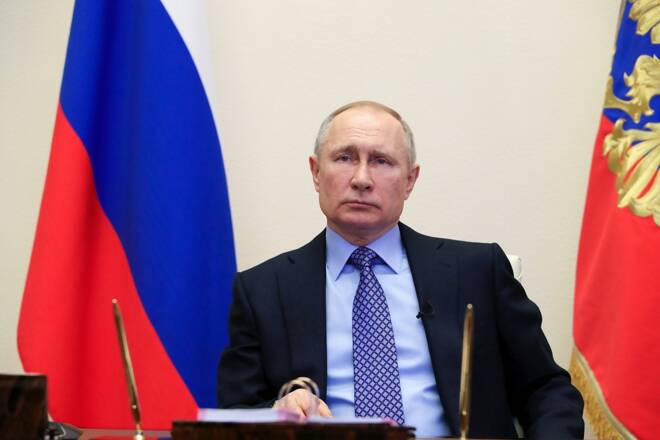Advertisement
Advertisement
Further Russian Conflict Escalation Could Pressure Ukraine Sovereign Credit Rating
By:
Further intensification of the conflict with Ukraine is probable. Depending on the extent of Russian actions, the implications as regards Ukraine’s B/Negative sovereign ratings may prove severe.
On 28 January 2022, we published B first-time sovereign credit ratings of Ukraine, with a Negative credit Outlook – reflecting potential for escalation of conflict.
A deepening of a long-standing conflict between Russia and Ukraine is likely after Russia’s recognition of self-declared ‘republics’ in the Donbas region. Russian forces entering eastern Ukraine places them closer to direct confrontation with Ukrainian forces – potentially creating grounds and pretext for more expansive conflict over time.
Russia may seek to pressure Ukraine and the West to force a moratorium of Ukraine’s NATO accession objective as well as diplomatic concessions from the West if not coerce a change in the pro-Western government of Ukraine.
Further escalation that undermines an outlook for Ukraine’s macro-economic stability could pose severe credit implications for the nation. A scenario of hryvnia loss if reserves were depleted, an acceleration of capital outflows, higher inflationary pressure as well as growth decline and/or wider budget deficits are possible outcomes.
In our January credit rating announcement, we noted that under an adverse scenario of equivalent severity to a 2014-15 geopolitical crisis, Ukrainian government debt could rise to 92.2% of GDP by 2024 (from circa 50% as of end-2021), before moderating to 80.6% by 2026.
Scope Ratings’ assessment of Ukraine reflects substantive efforts made by authorities to bolster economic resilience
Our B credit rating of Ukraine reflects the substantive efforts made by authorities to bolster economic resilience since the 2014-15 crisis. Nevertheless, existing buffers remain inadequate under a more severe or prolonged crisis given ultimately modest reserve coverage of 56% of short-term external debt.
The Ukrainian state debt portfolio remains highly exposed to currency risk: foreign-currency-denominated public debt accounts for 65% of the aggregate portfolio. This is broadly unchanged from an outstanding composition prior to the 2015 Eurobond restructuring and represents a central vulnerability. This means any scenario under which the hryvnia drops severely represents a core risk to the sovereign’s creditworthiness.
The hryvnia has weakened by a manageable 9% against the euro since November 2021, although the central bank has been selling foreign exchange to ease currency volatility.
Ukraine has rebuilt foreign-exchange buffers in recent years – with reserves of a bolstered USD 27.7bn as of January 2022, although trimmed USD 1.7bn since Dec-2021’s post-2012 peak. The US government has made available USD 1bn of loan guarantees, and the European Council has approved EUR 1.2bn of additional macro-financial assistance. Ukraine has an IMF programme until (at least) June 2022 that has USD 2.2bn in undisbursed funding. The government is likely to seek further IMF assistance alongside an extraordinary vehicle of transfer of Special Drawing Rights.
Western economic support has come as Ukraine lost international market access
Western economic support has come as Ukraine momentarily lost international financial-market access. Ukraine’s five-year dollar bond has of recent traded near 1,000bps over US treasuries, from around 400bps in September 2021.
There is still a number of available scenarios, including those observing de-escalation as long as negotiations continue. However, such scenarios have narrowed in view of Russia’s most recent actions.
Whatever occurs over the coming months, the return of a more prolonged confrontation between the West and Moscow looks likely.
For a look at all of today’s economic events, check out our economic calendar.
Dennis Shen is a Director in Sovereign and Public Sector ratings at Scope Ratings GmbH.
About the Author
Dennis Shencontributor
Dennis Shen is the Chair of the Macroeconomic Council and Lead Global Economist of Scope Ratings based in Berlin, Germany.
Advertisement
